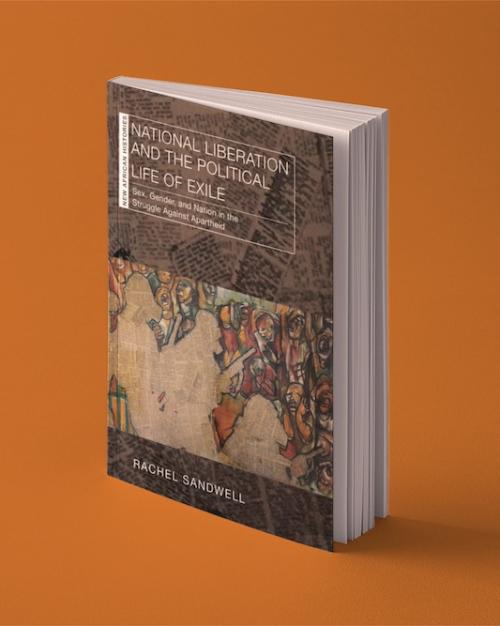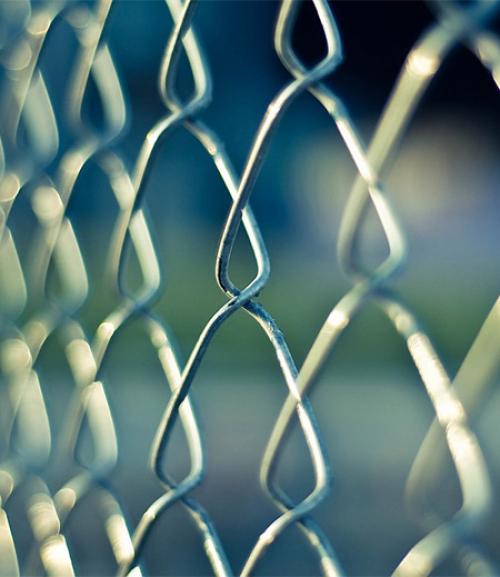This is an episode in the “What Makes Us Human?” podcast from Cornell University’s College of Arts & Sciences, showcasing the newest thinking from across the disciplines about what it means to be human in the twenty-first century. Featuring audio essays written and recorded by Cornell faculty, the series releases a new episode each Tuesday through the fall.
I have been involved with a number of colleagues at Cornell University in establishing a degree program in four neighboring New York state prison facilities.
I begin this reflection with a story not from Ithaca but from a small Kenyan village. A young man in this village had epilepsy. When he went out to look for work, other laborers would be picked, and he would watch in despair as he was left idle by the side of the road. According to a National Public Radio report, “Despite his affliction, he was able to make and save some minimal funds. He used those funds and some money from an aid organization to purchase medicine—and something almost more essential—a couch.” His mother describes the afternoon when the taxi arrived with a new sofa set strapped to the roof. With the couch set in his hut, her son started calling to his friends, “Come, come have a seat.”
“What poverty really stole from him,” the NPR correspondent said, “was his dignity ... and the couch set is what’s given it back.”
The Cornell Prison Education Program brings what I like to think of as a “couch set” to the prisons – a place, the classroom, where prison students and instructors alike can recuperate individual and collective dignity. Inside the classroom, two possibilities come alive. The philosopher Martha Nussbaum speaks of these conditions as capabilities. The first is the capability to “imagine, to think, and to reason--and to do these things in . . . a way informed and cultivated by an adequate education.” The second is the capability to connect to others, “to live with and toward others, to recognize and show concern for other human beings.” Both are essential conditions of what it means to be human.
There are as many ways to acquire and exercise these capabilities in the prison classroom as there are prison students. One student with a life sentence, in the program has become a consummate reader, probing and analytical, attuned to the comic and satirical. He tutors, teaches -- and now publishes. Another student uses his years in the prison classroom to convince the newer students not yet confident or convinced of education’s importance to push themselves beyond their own imagined possibilities. Through his kindness and persistence, the classroom becomes a community. Instructors and students find common ground there. Writer David Ulin says that reading offers “the blurring of the boundaries that divide us...bridging the gap of our loneliness so that we can...come together with another human being.”
Prisons are, almost by definition, sepulchers to inhumanity: the isolation from society, physical deprivation, cell tossings, body searches, verbal and sometimes-physical abuse and threats of violence, punishing practices of keeplock and solitary confinement. Some believe that it is as it should be: Those who commit grievous crimes should forfeit their place within the human community.
But there is a counter perspective that underlies the logic of the prison classroom. In the prison program we seek to recognize the complexity of what it means to be human. As the Canadian attorney and writer, Rupert Ross, reflects, “...I shudder when I see headlines screaming ‘Get Tougher on Those Offenders!’ I don’t know how to lock up and torture only the ugly ‘offender-parts’ of people, while comforting the hurt parts, teaching the curious parts, nursing the starved parts, unearthing the hidden parts, emboldening the cautious parts and inspiring the dreaming parts.”
A sign posted outside the mess hall of a British prison reads, “No entry while feeding is in progress.” The Cornell Prison Education Program aims to subvert the fundamental premise underlying the language of this notice -- that prisoners are mere objects of control, without agency or individuality. We are committed to creating a context that recognizes the quintessentially human capabilities for dignity, learning, care, and connection.
More "What Makes Us Human" podcasts are available on iTunes and Soundcloud.




